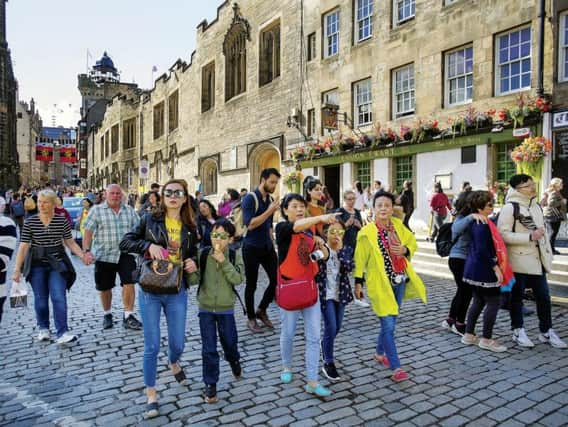Edinburgh masters the art of short term lets


It is barely six months since Edinburgh was said to be struggling with the use of city centre flats and dwellings by Airbnb providers. The city was awash with tales of properties emptying in the morning, of trolley bags rattling over cobbles and pavements and nights spent in dread by residents next door to the latest party flat.
How the city was to deal with that was unclear.
Regulatory involvement was mooted but now, Airbnb itself is considering bringing in a limit of 90 days usage per annum (not including festivals) in an attempt to find balance between serving tourists and residents in the Scottish capital. Market dynamics are also responding.
International providers of more traditional short-stay accommodation have recognised the potential in Edinburgh and are rising to the challenge.
Online booking platforms are beating Airbnb at its own game and savvy consumers now have more accommodation choice in the city than ever before.
The traditional hotel operators are simplifying their pricing for customers and buildings and land in the city is much in demand as the biggest players expand their offering.
For example, Erskine House on Queen Street, a former office block, is being converted into Scotland’s first Yotel hotel.
Malmaison will open its second hotel in the capital in Buchan House on St Andrew Square.
Virgin Hotels is planning its first hotel outside of the United States in the historic India Buildings on Victoria Street in the Old Town.
Permission has recently been granted for a 400-room hotel next to the Edinburgh International Conference Centre.
All these bring much needed capacity and price choice to the city’s hospitality sector.
Not only are we seeing an increase in build we are also seeing a high level of investment activity in the sector.
The Waldorf Astoria – the Caledonian was sold in a deal worth £85 million, with a further £20m being invested in its redevelopment, and the Principal Edinburgh Charlotte Square opened at the end of last year following a £25m refurbishment and rebrand.
At Womble Bond Dickinson, we see such strong performance across the commercial property sector as a key factor in our decision to bring our experienced real estate practice to Edinburgh last year.
The city is recognising its own potential and position in the world as a favoured short-stay destination. The city’s infrastructure is much in focus.
The airport continues to grow and develop. Work is continuing on its £80m expansion and officials expect passenger numbers to go up to 16.5 million by 2021.
Master planning for Waverley Station is underway in direct response to a major increase in footfall which has doubled from 10m to over 24m within the last ten years.
Estimates suggest that this footfall will almost double again by 2024.
With the rise in interest and investment into the hotel sector, coupled with Airbnb reviewing its own policies to address the possible oversaturation of short-term offerings in Edinburgh, will we see a slowdown in the Airbnb market?
Will we reach a peak in hotel openings? How will the city’s response evolve further?
All of these questions will start to become clear over the coming months and we, at Womble Bond Dickinson, will be keeping a close eye on developments.
Michael Spence is a partner and Emma Shearer an associate at Womble Bond Dickinson in Edinburgh